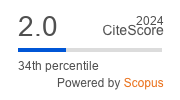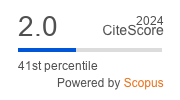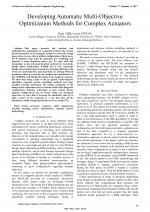| 4/2017 - 11 |
Developing Automatic Multi-Objective Optimization Methods for Complex ActuatorsCHIS, R. |
| Extra paper information in |
| Click to see author's profile in |
| Download PDF |
Author keywords
actuators, computer aided engineering, machine learning, pareto optimization, response surface methodology
References keywords
optimization(11), design(9), systems(7), multi(7), vintan(5), computing(5), objective(4), multiobjective(4)
Blue keywords are present in both the references section and the paper title.
About this article
Date of Publication: 2017-11-30
Volume 17, Issue 4, Year 2017, On page(s): 89 - 98
ISSN: 1582-7445, e-ISSN: 1844-7600
Digital Object Identifier: 10.4316/AECE.2017.04011
Web of Science Accession Number: 000417674300011
SCOPUS ID: 85035746256
Abstract
This paper presents the analysis and multiobjective optimization of a magnetic actuator. By varying just 8 parameters of the magnetic actuators model the design space grows to more than 6 million configurations. Much more, the 8 objectives that must be optimized are conflicting and generate a huge objectives space, too. To cope with this complexity, we use advanced heuristic methods for Automatic Design Space Exploration. FADSE tool is one Automatic Design Space Exploration framework including different state of the art multi-objective meta-heuristics for solving NP-hard problems, which we used for the analysis and optimization of the COMSOL and MATLAB model of the magnetic actuator. We show that using a state of the art genetic multi-objective algorithm, response surface modelling methods and some machine learning techniques, the timing complexity of the design space exploration can be reduced, while still taking into consideration objective constraints so that various Pareto optimal configurations can be found. Using our developed approach, we were able to decrease the simulation time by at least a factor of 10, compared to a run that does all the simulations, while keeping prediction errors to around 1%. |
| References | | | Cited By |
Web of Science® Times Cited: 1 [View]
View record in Web of Science® [View]
View Related Records® [View]
Updated today
SCOPUS® Times Cited: 1
View record in SCOPUS® [Free preview]
View citations in SCOPUS® [Free preview]
[1] A competitive new multi-objective optimization genetic algorithm based on apparent front ranking, Neghină, Mihai, Dicoiu, Alina-Ioana, Chiş, Radu, Florea, Adrian, Engineering Applications of Artificial Intelligence, ISSN 0952-1976, Issue , 2024.
Digital Object Identifier: 10.1016/j.engappai.2024.107870 [CrossRef]
Disclaimer: All information displayed above was retrieved by using remote connections to respective databases. For the best user experience, we update all data by using background processes, and use caches in order to reduce the load on the servers we retrieve the information from. As we have no control on the availability of the database servers and sometimes the Internet connectivity may be affected, we do not guarantee the information is correct or complete. For the most accurate data, please always consult the database sites directly. Some external links require authentication or an institutional subscription.
Web of Science® is a registered trademark of Clarivate Analytics, Scopus® is a registered trademark of Elsevier B.V., other product names, company names, brand names, trademarks and logos are the property of their respective owners.
Faculty of Electrical Engineering and Computer Science
Stefan cel Mare University of Suceava, Romania
All rights reserved: Advances in Electrical and Computer Engineering is a registered trademark of the Stefan cel Mare University of Suceava. No part of this publication may be reproduced, stored in a retrieval system, photocopied, recorded or archived, without the written permission from the Editor. When authors submit their papers for publication, they agree that the copyright for their article be transferred to the Faculty of Electrical Engineering and Computer Science, Stefan cel Mare University of Suceava, Romania, if and only if the articles are accepted for publication. The copyright covers the exclusive rights to reproduce and distribute the article, including reprints and translations.
Permission for other use: The copyright owner's consent does not extend to copying for general distribution, for promotion, for creating new works, or for resale. Specific written permission must be obtained from the Editor for such copying. Direct linking to files hosted on this website is strictly prohibited.
Disclaimer: Whilst every effort is made by the publishers and editorial board to see that no inaccurate or misleading data, opinions or statements appear in this journal, they wish to make it clear that all information and opinions formulated in the articles, as well as linguistic accuracy, are the sole responsibility of the author.



